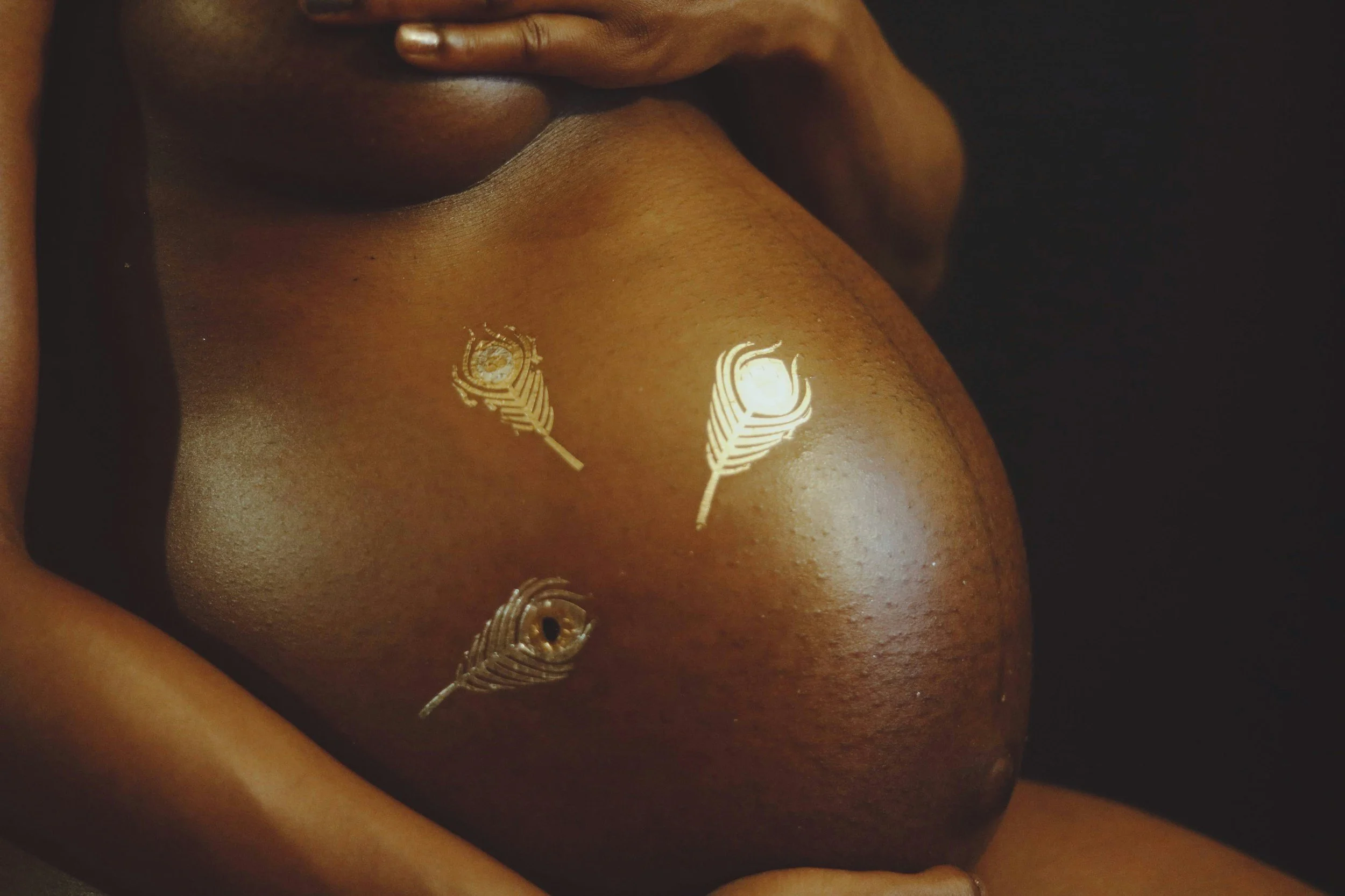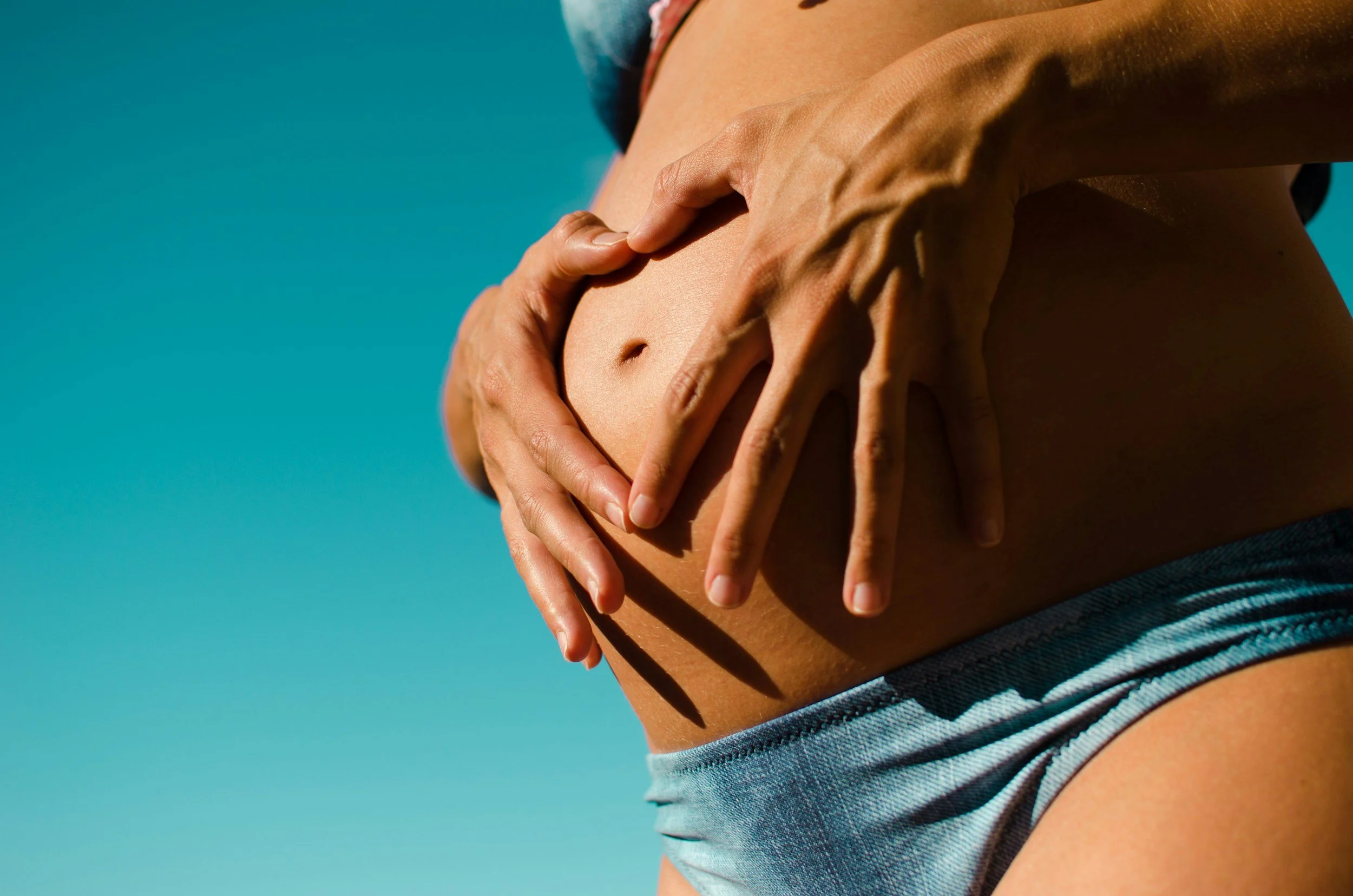How Much Weight Do You Lose in the First Week Postpartum?
What Really Happens to Your Body After Birth
Ah, postpartum life! You’ve just brought a tiny human into the world, and now you're juggling sleepless nights, endless diapers, and adjusting to your new role as a mom. Amidst all of this, it’s totally natural to wonder, "How much weight do you lose in the first week postpartum?" But before we dive into the details, let's get one thing straight—losing weight is not the most important thing right now. Your health, your baby’s health, and your well-being come first. Seriously, give yourself grace!!!!
Now, let’s take a look at what you can expect from your body in those early postpartum days.
The First Week Postpartum: What’s Going On?
When you leave the hospital (or wherever you delivered), you might feel like you've already shed a few pounds—because you have! You just delivered a baby, after all. But there’s a lot more happening in your body than meets the eye.
Here’s a breakdown of the typical weight loss in the first week postpartum:
Baby: On average, newborns weigh between 5-9 pounds. You lose this weight as soon as your baby is born (well, not lose it, because now you have to carry it in your arms!).
Placenta: This amazing organ, which nourished your baby during pregnancy, weighs about 1-2 pounds and is delivered shortly after your baby.
Amniotic Fluid: In the process of birth, you also lose several pounds of amniotic fluid, which typically adds up to 2 pounds.
So, straight away, you’re looking at shedding about 10-12 pounds simply from giving birth. But wait—there’s more!
Goodbye Swelling!
Remember those swollen feet and puffy hands you had during the last few weeks of pregnancy? That was your body holding onto extra fluids. Now that the baby’s out, your body no longer needs all that extra liquid. Over the next few days, your body will start to release it, which means you’ll be peeing a lot more than usual and sweating out a ton of water—especially at night.
Helpful Tip: Don't be surprised if you wake up drenched in sweat during the first week. It's totally normal, and it’s just your body flushing out all that excess fluid.
You can expect to lose another 5-10 pounds from this fluid shift alone in the first week postpartum. Just be sure to stay hydrated. Even though you’re losing a lot of water, your body still needs plenty to heal and, if you're breastfeeding, to produce the liquid gold.
During pregnancy, your uterus expands to accommodate your growing baby, but after delivery, it begins the process of shrinking back to its pre-pregnancy size. While this doesn’t contribute much to immediate weight loss, you will notice a change in how your belly looks over the coming weeks. Initially, your belly will still feel and look soft (totally normal!), but as your uterus contracts over the first 6-8 weeks, you’ll notice things gradually returning to normal.
Side note: Those contractions you feel postpartum (often called "afterpains") are actually your uterus working hard to shrink back down. It’s doing its thing, even when you’re resting.
So, How Much Weight Do You Actually Lose?
In total, most women lose around 10-20 pounds in the first week postpartum. This includes the baby’s weight, the placenta, amniotic fluid, and that extra fluid retention. But remember—this number can vary from woman to woman. Some might lose more, some less. Everyone's postpartum journey is different!
What About the Rest of the Weight?
The rest of the pregnancy weight doesn't magically disappear in the first week. And that’s okay! It took nine months to grow your baby, and it’s perfectly normal for it to take time to lose the additional weight. Your body is doing something extraordinary—healing, producing milk, and adjusting to life with a newborn. So, if you're not back to your pre-pregnancy jeans in a few weeks or even months later, that’s completely normal.
Focus on Healing, Not Losing Weight as your first priority after giving birth is not to lose weight. It’s to rest, heal, and bond with your baby.
Here are some postpartum care tips:
Eat Nutrient-Rich Foods: Your body needs fuel to heal and to keep up with the demands of motherhood. Focus on balanced meals that are rich in protein, healthy fats, fruits, and vegetables.
Stay Hydrated: Drink plenty of water to stay hydrated, especially if you're breastfeeding, which can make you feel extra thirsty.
Move When You’re Ready: Gentle movement, like walking or stretching, is great in the early weeks, but give your body time to recover before jumping back into any intense exercise.
Sleep (Whenever You Can!): Sleep is key to healing, but with a newborn, we know it's hard to come by. Nap when you can, and don’t feel bad about asking for help.
Listen to Your Body: If you’re feeling run down or overwhelmed, take a break. Your body has been through a lot, and it deserves some TLC.
Here’s the most important takeaway: losing weight shouldn’t be your top priority during the postpartum period. What matters most is your health and the health of your baby. Every woman's body is different, and it’s completely normal for the weight loss journey to take time. Focus on recovery, bonding with your baby, and taking things one day at a time. Your body is doing incredible work, and it deserves love, respect, and patience.Be kind to yourself—after all, you just brought new life into the world!
Disclaimer: Every woman’s postpartum journey is unique. Consult your healthcare provider for personalized postpartum care advice, especially if you're concerned about your recovery or weight changes.





